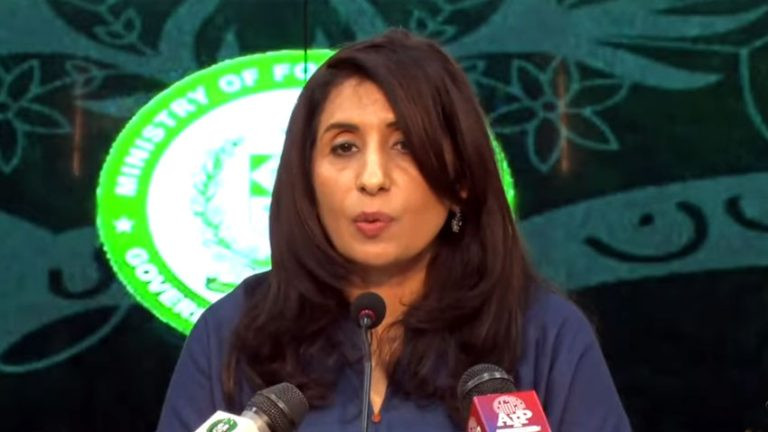Economy
$5 billion road, rail link between India and Sri Lanka in closing stages
Colombo/New Delhi: Discussions are in the final stages for a $5 billion road-and-rail link between India and Sri Lanka with India set to bear the cost of the strategic project, said the island-nation’s environment secretary Prabath Chandrakeerthi.
This is the first big bilateral infrastructure project announced by the island nation since the recent election of President Anura Kumara Dissanayake amid efforts by New Delhi to counter Chinese influence in South Asia.
India is Sri Lanka’s largest trade partner and one of the largest Foreign Direct Investment (FDI) contributors. Indian FDI amounted to around $142 million in 2021.
“Last month I participated in one meeting with India in New Delhi, and we are going to establish the highway and railway line connectivity between Rameswaram in India and Trincomalee in Sri Lanka," Chandrakeerthi told
Mint.
“This is being planned as businessmen in both countries have to pay more and with the road and rail connectivity, both parties can get help because it will help in trade with European and other countries. Indian businessmen can also get some benefits from Sri Lanka as well," the official added.
The Sri Lankan government proposed a land bridge between Rameswaram in Tamil Nadu of India and Talaimannar, a village in Mannar Island of Sri Lanka in 2002 and signed an agreement on it.
As per the agreement, road and rail bridge links were to be developed, offering economic benefits to both sides of the Palk Straits. However, after the agreement was signed, the Tamil Nadu government opposed the construction of the land bridge.
The talks resumed in 2015 when Indian asked the Asian Development Bank to carry out pre-feasibility study for financing a road and rail link between India’s Rameswaram and Sri Lanka’s Talaimannar
. But it has been decided to build the rail and road link up to Trincomalee, the official informed.
There is no land connection between Sri Lanka and India through road or railway. The closest Indian town tow Sri Lanka, Dhanushkodi, had a railway station but this was washed out in a cyclone in 1964. A short boat ride till 1966 connected the railway stations at Talaimannar in Sri Lanka and Dhanushkodi in India.
“The cost of the project is still not finalized. We have to have more discussion about that, but I think it is estimated to be nearly $5 billion," the Lankan official said, adding “It will entirely be borne by the Indian government. We have to get some approval for environmental clearance."
Project may involve bridges, underwater tunnels
He said the project may involve bridges and underwater tunnels to allow unhindered movement of ships.
The Bureau of Investigation of Sri Lanka prepared a detailed study and proposed for a six-lane combination of bridges, causeways and rail tracks. It was reported that the depth of water does not exceed seven metres at any point.
The official did not comment on whether the financing will be done by any of the multilateral banks.
Queries sent to the spokespeople and secretaries of Indian road transport and highways, ports, shipping and waterways, railways, external affairs and environment ministries remained unanswered at press time.
According to experts, establishing a road and railway link between India and Sri Lanka will go a long way in further strengthening trade ties.
Through the link, the movement of people and cargo is expected to surge, increasing economic opportunities for both. It is anticipated to reduce the travel time and cost of movement of goods and services and facilitate trade in South Asia. It will also enhance the capacity of the Trincomalee port in addition to that of Colombo port.
At present, about 12-15% of Indian cargo goes to Colombo Port in smaller ships which are loaded onto bigger ships for onward journey to Japan and countries in Europe and America.
If it materializes, it will facilitate a continuous road and ferry link from Madurai to Trincomalee and other major cities from both sides for cargo and passengers. It will also offer linkage to industries, especially agro-industries in South India and Sri Lanka, carry transmission lines to hook up Sri Lanka to India’s Southern region’s electricity grid with the Kudankulam nuclear power plant serving as a base load station.
In addition, if this is successful, a regional electric grid can be extended from Nepal, Bhutan to Sri Lanka. A firm, NEXANT, has reportedly carried out a study on the feasibility of a 30-kilometre submerged High-Voltage Direct Current (HVDC) link through the Palk Strait between the countries for the exports of 500 megawatt to Sri Lanka.
There are about 100 Indian companies invested in natural gas and oil, shipping, etc. in Sri Lanka. Through greater connectivity and cooperation, both can offer greater economic opportunities to each other and build a more comprehensive commercial environment.
Other experts argue that a rail and road link between India and Sri Lanka will not justify the cost involved in making it. However, there’s a need for feasibility study.
“India-Sri Lanka trade is very limited; it has not reached its full potential and since the distance is very small between these two countries. It's being done nicely through the ships and since people to people connect between Tamil Nadu and Sri Lanka is there, but I feel it will not justify the cost involved in making of a dedicated rail link," said Ajay Srivastava, founder of Global Trade Research Initiative.
“Before investing the first dollar, a detailed feasibility study of cost and benefit analysis must be done."
Puja Das was in Colombo to attend a workshop on climate change organised by French Development Agency in South Asia between 8-10 October ahead of COP29 in Azerbaijan next month.












.png)
 This is next level conspiracy theory
This is next level conspiracy theory 








